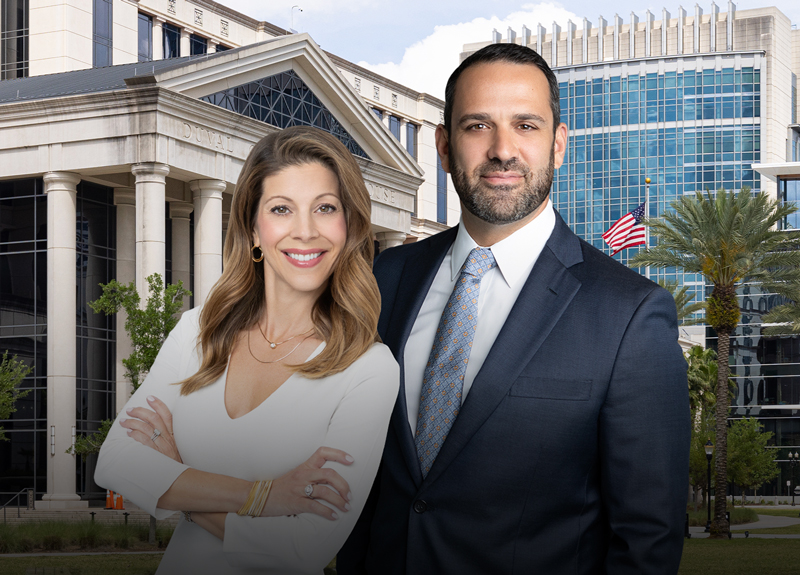Understanding Assumption of Risk
The “assumption of risk” defense is used in some personal injury cases. The at-fault party alleges you understand you could be injured if you continued with a specific activity or conduct. Therefore, it is not responsible for your damages because you “assumed the risk” by voluntarily continuing despite your knowledge of the risk.
For example, you might see a sign at a hotel swimming pool that you “swim at your own risk.” The hotel is trying to avoid liability for injuries by clarifying that you assume the risk of injury if you use their swimming pool.
However, the assumption of risk is not a complete bar to negligence claims. There are exceptions to the assumption of risk defense.
When Can a Defense Use Assumption of Risk in a Personal Injury Case?
First, it helps to understand the difference between implied and expressed assumptions of risk.
Express assumption of risk generally involves signing a waiver. The waiver explains the risks of an activity, acknowledges you understand the risks and waives liability for injuries or damages if you are injured. Implied assumption of risk generally applies when the person knows about the risks of an activity and continues without regard for the risks.
An example of an express assumption of risk would be a written waiver you sign before bungee jumping, rock climbing, or windsurfing. The company informs you of the risks of the activity, but you continue despite the warnings and the risk.
Attending sporting events could be an example of an implied assumption of risk. For example, sitting in the stands at a baseball game or hockey game could result in injury if a ball or puck flies into the stands. In addition, many sporting events announce risks or post signs.
Does a Signed Wavier Always Protect a Party from Liability?
Even though you sign a waiver assuming the risk of an activity, the signed waiver does not protect a party from all liability. For example, the assumption of risk does not protect parties who intentionally cause an injury. Likewise, the waiver may not protect the party from gross negligence or recklessness.
For example, an amusement park operator might be held liable for injuries caused by a failure to maintain the equipment or knowingly using faulty or damaged equipment. Even though you signed a liability waiver, you did not assume a risk of injury caused by negligence.
Childhood injuries can also be an exception to the assumption of risk defense. Courts may determine that a child does not have the capacity to understand the risk of certain activities.
Therefore, the courts do not hold children to the same standard as adults. Furthermore, minors cannot legally waive their rights without their parent’s consent.
How Does Florida’s Comparative Fault Laws Impact Assumption of Risk?
Florida’s comparative fault law could impact the amount of money you receive for an injury. The theory of contributory fault holds each party liable for their portion of damages from an injury or accident. You cannot recover compensation for your percentage of fault.
For example, if a jury finds that you contributed to the cause of your injury by 45%, your compensation for damages is reduced by that percentage. If the jury awarded you $250,000 for your damages, you would receive $137,500 (total award less 45%).
A personal injury lawyer can help you fight allegations of contributory fault and assumption of risk.
Damages Available for Negligence Claims
Most personal injury claims are based on allegations of negligence. You must prove the party owed you a duty of care, and that the party breached the duty of care. You also have the burden of proving that the breach of duty caused your injuries and damages.
If you prove your case, you could receive economic and non-economic damages, including:
- Medical bills
- Permanent impairments and disabilities
- Long-term nursing care and personal care
- Loss of income, including benefits, future lost wages, and diminished earning potential
- Mental anguish and emotional distress
- Loss of enjoyment of life
- Physical pain and suffering
- Out-of-pocket expenses
- Decrease in quality of life
The amount of your compensation depends on the facts of your case. Assumption of risk could be a factor, especially if you signed a waiver. The at-fault party and the insurance company may argue that you are not entitled to compensation.
Do not assume that an insurance adjuster is correct or is telling you the truth about your claim. It is always best to seek legal advice to ensure that you understand your legal options and the money you are entitled to receive after an injury or accident.
Contact the Jacksonville Personal Injury Law Firm of Baggett Law Personal Injury Lawyers Today For Help
For more information, please contact the Jacksonville and Ponte Vedra personal injury law firm of Baggett Law Personal Injury Lawyers at the nearest location to schedule a free consultation today.
We serve in Duval County, St, Johns County, and its surrounding areas:
Baggett Law Personal Injury Lawyers – Jacksonville
9471 Baymeadows Rd #105,
Jacksonville, FL 32256, United States
(904) 396-1100
Baggett Law Personal Injury Lawyers – Downtown Jacksonville
121 W Forsyth St Suite 1000
Jacksonville, FL 32202
(904) 822-4225
Baggett Law Personal Injury Lawyers – Ponte Vedra
480 Town Plaza Ave #130,
Ponte Vedra Beach, FL 32081
(904) 675-1167

